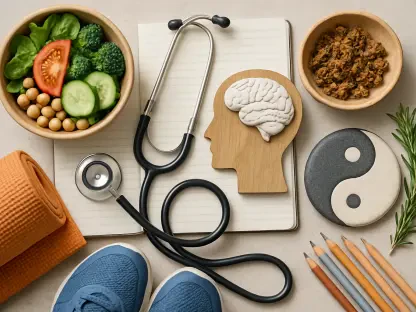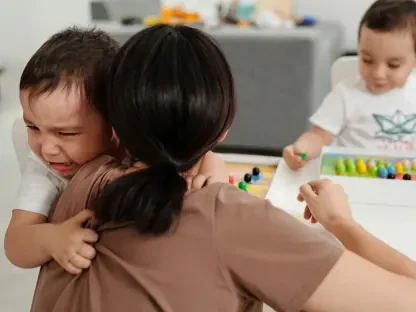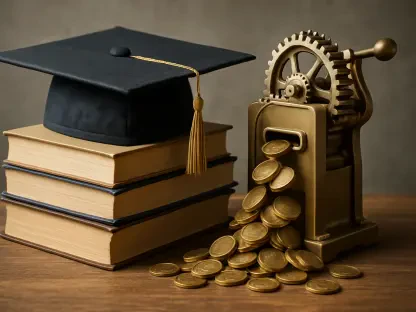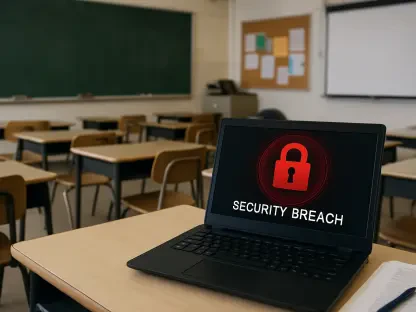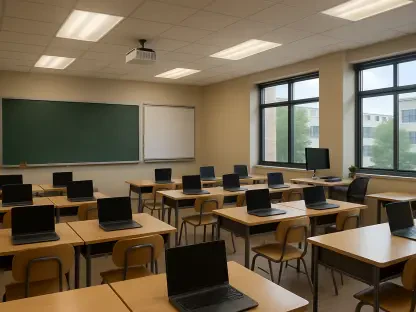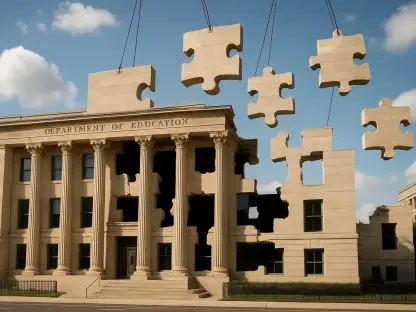Educational institutions are continuously seeking ways to make learning more engaging and effective. Despite challenges such as below-freezing temperatures and intermittent snow showers, schools are creatively extending learning beyond traditional classroom settings. This article explores various unique and dynamic educational experiences that students in different school districts are participating in, contributing to their overall development and excitement about schooling.
Allegany-Limestone’s Spanish III Class
Talk Abroad Program
Allegany-Limestone’s Spanish III class is utilizing the Talk Abroad program to enhance language skills. Students engage with professional conversation partners who are native Spanish speakers. Initially nervous, the students gradually become more comfortable, finding the experience enjoyable and beneficial for building confidence and proficiency in Spanish. This program allows students to immerse themselves in real-life conversations, vastly improving their understanding and fluency compared to conventional classroom exercises. By speaking with fluent Spanish speakers, students are exposed to various dialects and cultural nuances that a textbook could never fully capture.
The impact of the Talk Abroad program on the students’ language skills is profound. Real-time interaction with native speakers challenges students to think quickly and respond appropriately, replicating the kind of spontaneous dialogue they might encounter in a Spanish-speaking country. This type of experiential learning ensures that students are not just memorizing vocabulary and grammar rules, but actively applying their knowledge in meaningful ways. As their confidence grows, students find themselves more willing to take risks with the language, leading to faster and more sustained improvement. The program’s success is evident in the enthusiastic feedback from students who feel more prepared and excited to use their Spanish language skills in everyday situations.
Experiential Learning
The effectiveness of experiential learning is evident as students interact in real-time conversations. This hands-on approach helps them apply their classroom knowledge in practical scenarios, significantly improving their language competence. Experiential learning, such as that provided by the Talk Abroad program, bridges the gap between theoretical understanding and practical application, driving home the relevance of their studies. Each session with conversational partners brings new challenges and learning opportunities, making the students’ educational experiences rich and varied. Rather than being passive recipients of information, students actively engage in their own learning process.
By participating in experiential learning activities, students also develop critical soft skills such as communication, problem-solving, and cultural awareness. These skills are essential for success in any field and prepare students for the globalized world. As students practice their Spanish, they are also learning to navigate different social contexts and build relationships across cultural boundaries. The real-time feedback received during these interactive sessions allows for immediate correction and improvement, which is far more effective than traditional methods of learning a language. The overall result is a deeper, more comprehensive understanding of Spanish that will serve students well beyond their academic career.
Belfast Central School’s Fifth Graders
Field Trip to Prehistoric World
Belfast Central School’s fifth graders had an enriching experience at Prehistoric World, New York state’s only interactive reptile zoo. This field trip marked the end of their Rainforest unit, allowing students to physically interact with various reptiles, enhancing their understanding and interest in the subject matter. Experiences like these provide a tangible context to classroom learning, making abstract concepts more relatable and easier to grasp. At Prehistoric World, students got the chance to observe and handle different species, seeing firsthand the diversity of life that thrives in rainforest ecosystems.
For the fifth graders, the field trip wasn’t just an educational exercise but a memorable adventure that reinforced their enthusiasm for learning about the natural world. As students interacted with creatures they had previously only seen in pictures, they developed a deeper appreciation and fascination for biology and environmental science. This kind of immersive experience is invaluable in piquing students’ curiosity and encouraging them to ask questions, explore further, and form meaningful connections with the material they are studying.
Hands-On Learning
The hands-on approach to learning provided by the field trip was not only a practical application of their studies but also an exciting adventure. Students’ enthusiasm was evident, with one proclaiming it as “the best Friday ever!” This reinforces the value of interactive and experiential learning in education. Engaging students in hands-on activities allows them to learn by doing, which is often far more impactful than traditional methods of instruction. When students actively participate in their own learning process, they retain information better and develop a stronger interest in the subject matter.
During their visit to Prehistoric World, students had the chance to apply concepts they had learned in their Rainforest unit in a real-world setting. They could see the anatomy of reptiles up close, observe behaviors, and even experience the tactile sensations of interacting with these animals. This multi-sensory approach to learning stimulates different areas of the brain, enhancing comprehension and memory retention. Additionally, field trips like this provide opportunities for social and emotional growth, as students collaborate, share their observations, and build relationships with their peers in a unique and stimulating environment.
Ellicottville Elementary School’s Community Building
Friday Afternoon Meeting (FAM)
Ellicottville Elementary School fosters community and character development through their Friday Afternoon Meeting (FAM). These meetings serve as community-building exercises where students celebrate birthdays, learn about positive character traits, and exhibit student leadership. By creating a regular space for students to come together and celebrate their peers, the school promotes a sense of belonging and mutual respect. Each FAM session is a mix of informative content and enjoyable activities, ensuring that students look forward to these gatherings as a highlight of their week.
The inclusive nature of FAM encourages students to take on leadership roles and actively participate in creating a positive school environment. Whether they are leading a presentation, organizing an event, or simply participating in discussions, students are given numerous opportunities to develop their public speaking, teamwork, and organizational skills. This emphasis on character development goes hand-in-hand with academic learning, fostering well-rounded individuals who are prepared to contribute positively to their communities. Celebrating individual achievements and milestones, such as birthdays, also helps to build a supportive and nurturing atmosphere where every student feels valued.
Focus on Dr. Martin Luther King Jr.
A specific meeting focused on the teachings and significance of Dr. Martin Luther King Jr., connecting his advocacy to the character trait of perseverance. This initiative helps students understand important historical figures and their contributions while promoting positive character development. By highlighting Dr. King’s life and achievements, the school provides a powerful example of resilience, leadership, and the importance of standing up for one’s beliefs. Students are encouraged to draw parallels between Dr. King’s struggles and their own personal challenges, helping them to see the value of perseverance in their everyday lives.
Integrating lessons from historical figures like Dr. King into character education emphasizes the importance of ethics and social responsibility. It also helps students develop a deeper understanding of social justice and the ongoing relevance of these issues. By framing these lessons around real-world examples, FAM sessions make abstract virtues like perseverance more tangible and relatable for students. This approach not only enriches their understanding of history but also inspires them to embody these positive traits in their own actions and decisions, fostering a generation of thoughtful, conscientious citizens.
Gowanda Central School District Achievements
American Legion Auxiliary Empire Girls State Program
Gowanda Central School District celebrates the achievements of students like Isabelle Graham, a junior selected to participate in the 2025 session of the American Legion Auxiliary Empire Girls State Program. This prestigious program selects students who exemplify leadership, character, scholarship, cooperation, and maturity. Being chosen for such a distinguished program is a testament to Isabelle’s outstanding qualities and her potential for future success. The program offers participants a unique opportunity to engage deeply with civic education and develop their leadership skills in an immersive environment.
Through the American Legion Auxiliary Empire Girls State Program, participants will build a theoretical state government, participate in legislative processes, and foster a deeper understanding of democratic responsibilities. This experience not only enhances their knowledge of government and politics but also provides invaluable practical skills in leadership, negotiation, and public speaking. For students like Isabelle, the program represents a significant milestone in their educational journey, offering them a platform to demonstrate their capabilities and grow as leaders. The skills and insights gained from this experience are likely to have a profound impact on their academic and professional futures.
Leadership and Personal Growth
Participants engage in building a theoretical state government, participating in legislative processes, and fostering a deeper understanding of democratic responsibilities. This opportunity enhances their educational experience and promises significant personal growth. By simulating the workings of a state government, students learn about the complexities and challenges of governance, gaining a firsthand appreciation for the intricate balance of power, negotiation, and compromise that characterizes democratic systems. This practical exposure is invaluable in helping students understand the relevance and importance of active civic engagement.
The program also emphasizes the development of leadership skills and personal growth. Students are encouraged to take initiative, collaborate with their peers, and think critically about the issues at hand. These activities foster a sense of responsibility and accountability, preparing participants for future roles as community leaders and informed citizens. The prestigious nature of the program and the rigorous selection process further boost students’ confidence and motivation, reinforcing their commitment to excellence in all areas of their lives. Participants leave the program not only with a deeper understanding of civic duties but also with a renewed sense of purpose and direction for their future careers.
Randolph Central School’s Infrastructure Focus
Hiring of Jamin Robbins
Randolph Central School’s strategic hiring of Jamin Robbins as the new senior maintenance mechanic highlights the district’s prioritization of specialized expertise. Robbins, who previously managed trades at Chautauqua Institution, brings significant experience to his new role. His hiring underscores the district’s commitment to maintaining a high standard of facilities management, ensuring that students and staff have a safe and conducive environment for learning and working. Robbins’ expertise in managing complex systems and his dedication to quality make him a valuable addition to the district’s operations team.
Robbins’ responsibilities include overseeing the building and grounds team and preparing for the next phase of the district’s capital project. His technical skills in maintaining essential systems such as HVAC, electrical, and data networks are crucial for the uninterrupted functioning of school facilities. His arrival comes at a critical time as the district gears up for significant infrastructure improvements, and his leadership will be key to ensuring these projects are completed efficiently and effectively. Robbins’ role is not just about maintaining the status quo but also about driving continuous improvements and innovations in facility management.
Maintenance and Operations
Robbins’ responsibilities include overseeing the building and grounds team and preparing for the next phase of the district’s capital project. His technical skills in maintaining essential systems such as HVAC, electrical, and data networks are crucial for the uninterrupted functioning of school facilities. Effective maintenance and operations are the backbone of any educational institution, directly impacting the quality of the learning environment. Robbins’ role involves not only preventive maintenance and repair but also strategic planning to address future needs and potential challenges. His systematic approach ensures that facilities are well-maintained and capable of supporting the district’s educational goals.
Robbins’ extensive experience in managing trades and his proactive approach to problem-solving make him well-suited to handle the diverse challenges that come with maintaining school infrastructure. He will be tasked with leading a team of skilled professionals, coordinating efforts to ensure that everything from classroom heating to computer networks operates smoothly. This level of expertise and leadership is essential for creating a reliable and efficient support system for the district’s educational programs. By prioritizing top-tier maintenance and operations, Randolph Central School demonstrates its commitment to providing an optimal learning environment for students and staff alike.
Salamanca City Central School’s College and Career Portfolio Class
Real-World Interview Scenarios
Salamanca City Central School students in the College and Career Portfolio class experienced a distinctive final exam through one-on-one interviews with local business leaders. This exercise aimed to simulate real-world interview scenarios, allowing students to demonstrate their readiness for higher education or the workforce. This practical assessment method provides students with a genuine understanding of the interview process, preparing them for the challenges they will face in future job hunts or college admissions interviews. Engaging with professionals from their community helps students gain valuable insights into local industries and potential career paths.
The exercise goes beyond standard classroom tests, placing students in high-pressure situations that require them to apply their skills and knowledge effectively. By practicing interviews, students learn to articulate their thoughts, present their achievements confidently, and respond thoughtfully to questions. They receive immediate feedback from business leaders, which is crucial for their improvement and growth. This real-world practice develops essential soft skills such as communication, self-presentation, and time management, equipping students with the tools they need to succeed in various professional and academic environments.
Regional Competition and Scholarships
The top two students from this exercise will advance to a regional competition, with opportunities to win scholarships. This class, part of the ECC Advanced Studies program, allows seniors to earn college credits while still in high school, reflecting an innovative approach to blending secondary and postsecondary education. The possibility of earning scholarships adds a competitive edge to the exercise, motivating students to put forth their best effort. Recognizing and rewarding excellence in these interviews underscores the importance of professional readiness and academic achievement.
By offering college credits through the ECC Advanced Studies program, Salamanca City Central School provides students with a head start on their higher education journey. This innovative approach reduces the financial and academic burden of college, making higher education more accessible and achievable. The blend of secondary and postsecondary education allows students to experience college-level coursework and expectations, making the transition to college smoother and less intimidating. This dual-enrollment program exemplifies the school’s commitment to preparing students for the future and highlights the importance of early exposure to college protocols and standards.
Conclusion
Educational institutions are always on the lookout for innovative ways to make learning both engaging and effective. Despite facing hurdles like below-freezing temperatures and sporadic snow showers, schools are finding creative methods to extend education beyond the limitations of traditional classroom settings. This article delves into a variety of unique and dynamic educational experiences that students in various school districts are engaging in. From outdoor learning activities to integrating technology in novel ways, these approaches not only foster students’ overall development but also significantly boost their enthusiasm for schooling. Such methods include experiential learning opportunities, project-based assignments, and community interaction projects, all of which enrich the educational journey. By breaking away from conventional classroom confines, these educational institutions aim to cultivate a more stimulating learning environment that encourages curiosity and a genuine love of learning. Through these innovative strategies, students are gaining valuable skills and insights that contribute to their holistic growth, making education a more enjoyable and effective experience.


